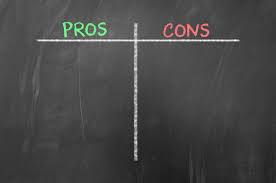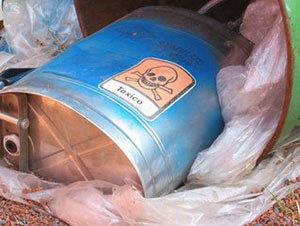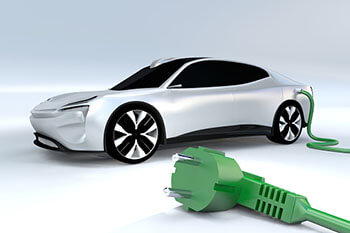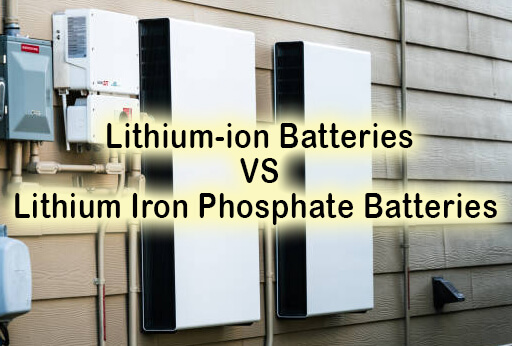Have you ever wondered what type of rechargeable lithium battery is best: Lithium-ion Batteries or Lithium Iron Phosphate Batteries (LiFeSO4)?...
If so, you’re not alone! Because while both battery names may sound similar; they are not the same. And they have many different Pros and Cons (which we’ll cover in this guide).
A lot of people also wonder if a lithium-ion or lithium iron phosphate battery is the better choice in their solar/off-grid energy system, portable electronic, electric vehicle, or equipment (and we’ll talk about all of this in this guide also)…
Now you may already be familiar with lithium-ion batteries because you’re probably already using these in your smart phone, electric vehicle, or laptop. But the “new kid of the block” is the lithium iron phosphate battery (or Lithium Iron battery for short).
And in this guide, we'll show you the differences between lithium-ion batteries and lithium iron phosphate batteries by (#1) highlighting their similarities and differences, (#2) discussing the Pros and Cons of each battery, (#3) and showing you when one battery may be the better option.
First, Let’s Discuss The Similarities Between Lithium-ion and Lithium Iron Batteries
As you can imagine, lithium-ion batteries and lithium iron batteries are lithium-based at their core. Both batteries move the lithium-ion (stored in the batteries) between positive and negative electrodes, which creates the discharge and charge.
Both batteries are also rechargeable batteries, which is one reason they are often used in:
- Electronic devices like laptops and smartphones
- Off-grid energy systems like solar panel and wind turbine systems
- And electric vehicles
Both batteries are also pretty expensive compared to other battery types like lead-acid batteries and nickel-based batteries (but they offer impressive benefits

over these older battery types – which we’ll discuss in this guide).
Next, Let’s Do a Quick Overview of Lithium-ion Batteries
Lithium-ion batteries have been around longer than lithium iron phosphate batteries. Here are some of the Pros and Cons of lithium-ion batteries:
Pros:
- Faster recharge times (compared to lithium iron batteries)
- Higher energy density (compared to lithium iron batteries)
- High power output
- 80% discharge efficiency (better than lithium iron batteries)

Cons:
- Shorter lifespan between charges (compared to lithium iron batteries)
- Often comparatively shorter lifespan (compared to lithium iron batteries)
- Uses environmentally toxic materials (unlike lithium iron batteries)
And Now, Here’s a Quick Overview of Lithium Iron Batteries
The lithium iron battery is a development upon the lithium-ion battery, so many of its technical specifications are better in many ways (but not in all ways). So here are the Pros and Cons of Lithium Iron Phosphate batteries:
Pros:
- Longer lifespan between cycles (compared to lithium-ion batteries)
- Estimated lifespan of 2,000 to 12,000 cycles if property taken care of (this is much better than lithium-ion batteries, which are closer to 400 to 1,200 cycles)
- Stable design that resists degradation
- Made with non-toxic materials
- High heat tolerance (better than lithium-ion batteries)
Cons:
- Slow recharge times (compared to lithium-ion batteries)
- Often weaker energy output (compared to lithium-ion batteries)
- Lower discharge efficiency (compared to lithium-ion batteries)
Lithium-Ion vs Lithium Iron Batteries - How the Two Batteries Compare
While the two batteries have similarities at their core, there are many distinct differences between the two batteries. The most notable differences are in their stability, lifespan, and the applications you would want to use the batteries in.
So here are some of the key differences between the two batteries, and more in-depth information about where one battery is better than the other:
Chemical Makeup (Advantage: Lithium Iron Phosphate Batteries)
While both batteries may be lithium-based, the name of each battery is a giveaway that the two batteries are ultimately made up of different materials.
Lithium-ion batteries - for the most part - use lithium cobalt oxide or lithium manganese oxide for their cathodes. This can be a big problem for the manufacturer as lithium cobalt oxide is toxic and thus must be disposed of very carefully. Lithium Iron batteries instead use - as you might have guessed - a lithium iron phosphate combination for their cathode. This is a significant advantage over the

lithium-ion battery as lithium iron phosphate batteries use a nontoxic material, so there isn't as much of a risk when disposing of these batteries.
Stability and Safety (Advantage: Lithium Iron Phosphate Batteries)
Lithium iron phosphate batteries are newer in design than lithium-ion batteries.
And when lithium iron phosphate batteries were designed, they improved the stability of the battery compared to lithium-ion batteries and made them far more stable in a thermal and chemical sense than lithium-ion batteries.
This means that lithium iron batteries are safer to use because they are less likely to combust if not handled safely or correctly.
Lifespan (Advantage: Lithium Iron Phosphate Batteries)
Lithium iron batteries have a longer lifespan compared to lithium-ion batteries because of the phosphate chemistry in lithium iron batteries.
And the phosphate chemistry in lithium iron batteries gives them extra stability which helps them last longer because they will take much longer to break down.
Lithium iron batteries are also more resistant to degradation when it comes to harsh conditions such as short circuits and overcharges, which are common contributors to shortening a battery's lifespan.
Lithium iron batteries also have a higher heat tolerance, so they can survive much longer when the device or system they are being used in doesn't get a chance to cool down (*note: we do not recommend overclocking a system as the heat produced can still damage other parts of a device or machine).
With that being said, here are how the lifespans of each battery type compare:
Lithium Iron Phosphate Life Cycle Stats:
- Longer lifespan than lithium-ion batteries
- Cycle durability of 2,000 (up to 12,000)
- More stable and durable against degradation
- Higher heat tolerance
Lithium-Ion Life Cycle Stats:
- Cycle durability of 400 (up to 1,200)
- More prone to degradation
- Shorter lifespan compared to lithium iron batteries
- Less heat tolerant
Energy Density (Advantage: Lithium-Ion Batteries)
Lithium-ion batteries win a category. And energy density is where lithium-ion batteries really excel compared to lithium iron phosphate batteries.
Lithium-ion batteries have the highest energy density out of all rechargeable battery types that currently exist. And this gives them the easiest and fastest recharging times out of all batteries (which is why most electronics and handheld tools use lithium-ion batteries).
On the other hand, lithium iron batteries, still have good energy density but they are not on the same level as lithium-ion batteries.
Lithium-Ion Energy Density Overview:
- Higher energy density (compared to lithium iron batteries)
- Faster recharge times (compared to lithium iron batteries)
- Stronger energy output (compared to lithium iron batteries)
- Shorter lifespan between charges (compared to lithium iron batteries)
Lithium Iron Phosphate Energy Density Overview:
- Longer lifespan between charges (compared to lithium-ion batteries)
- Lower energy density (compared to lithium-ion batteries)
- Slower recharge times (compared to lithium-ion batteries)
- Weaker energy output (compared to lithium-ion batteries)
Cost (Advantage: Lithium Iron Phosphate Batteries)
Lithium-ion and Lithium Iron Phosphate batteries make advances every day. So the costs will change overtime but currently, lithium iron phosphate batteries are cheaper.
Lithium Iron batteries are cheaper because they use safer materials - specifically their use of iron phosphate instead of the more toxic and unstable materials in lithium-ion batteries. And this safer material allows the battery manufacturer to save money because they don’t have to go through costly

recycling procedures (and these cost savings get passed onto consumers).
Which Battery Should You Choose (Lithium-ion or Lithium Iron Phosphate)?
As you’ve seen in this guide, there are some significant differences between lithium-ion and lithium iron phosphate batteries.
Lithium iron phosphate batteries are the newer battery type (compared to lithium-ion batteries) and offer a lot of exciting benefits over lithium-ion batteries except for for something really critical… Energy Density.
And a battery is only useful if it has the characteristic and power needed for the application you want to use it in. So, when you compare lithium-ion and lithium iron phosphate batteries, you need to think about what you will be using them for.
For example, lithium-ion batteries are ideal for use in smartphones, laptops, power tools, and other smaller handheld devices because of their shorter charging time. This is because you generally won't use these electronics or devices for incredibly long periods, so the shorter battery life with a faster recharge is more valuable.
However, you may need a longer-lasting or more stable battery, regardless of charging time (like in an electric vehicle or an alternative energy setup) – and in scenarios like this, lithium iron phosphate batteries may be better.
A lot of people wonder which type of battery is best in electric vehicles and the answer once again is… it depends. Both lithium-ion and lithium iron phosphate work well in electric vehicles (but they excel in different areas). So, if power and acceleration is what you want out of your vehicle, the higher power output of the lithium-ion battery will be better.Or if faster recharge times are most
important, once again, lithium-ion would be

better. Or if faster recharge times are most important, once again, lithium-ion would be better. But if you want more stability or longer battery life, lithium iron phosphate may be better.
So which battery should you choose? Well, look at what characteristics you need out of your battery (i.e. Stability/Safety, Lifespan/Life Cycles, Energy Density, etc.) and pick the battery that does best at what you need it to be best at! This is not a one size fits all sort of things. And with this guide, you can now make an educated, well informed decision!
We hope you found this guide very helpful and you now feel confident in choosing between a lithium-ion or lithium iron phosphate battery.



2 replies to "Lithium-ion Batteries vs. Lithium Iron Phosphate Batteries (which should you use?) (direct)"
This was so helpful
Thank you for this